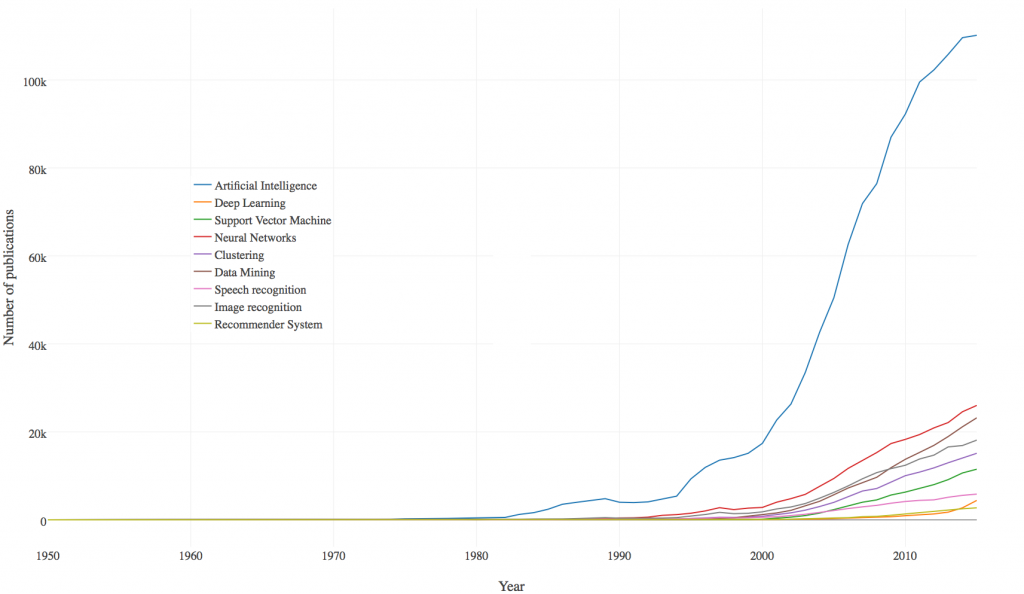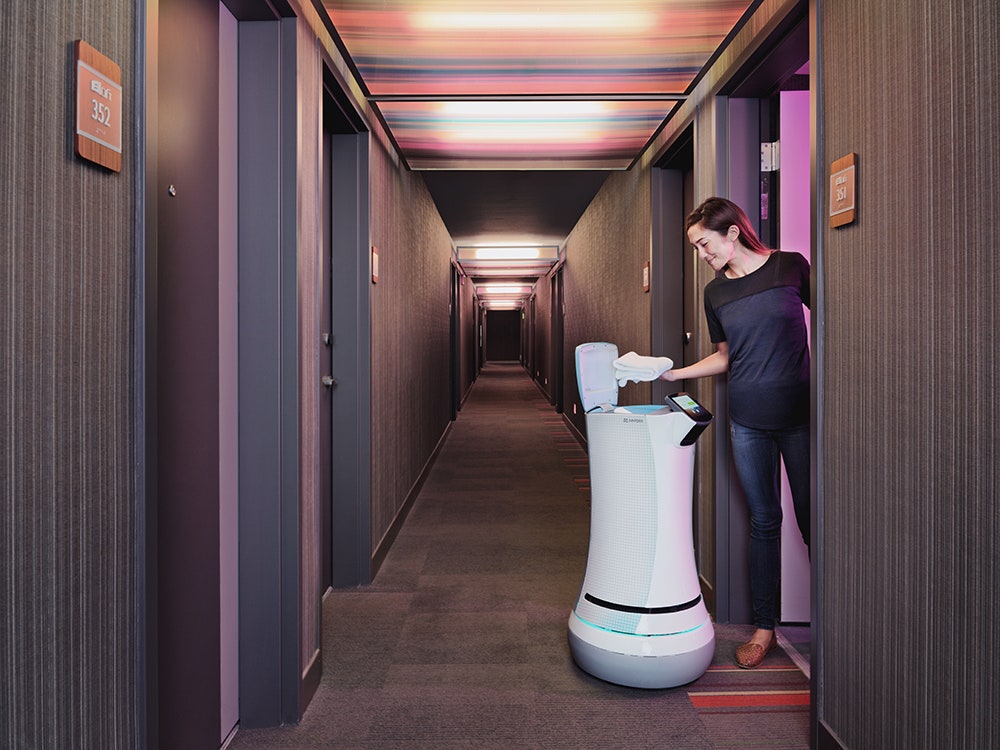There is no denying it, there is nonstop buzz around AI (artificial intelligence). From facial recognition to Siri to self driving cars, there is no shortage of use cases for the high-tech. But, how much of the buzz is smoke and mirrors for proptech? Is it all just an empty buzzword that flowed into the commercial real estate world?
We have good news and bad news.
Good news: AI is real.
Bad news: AI hasn’t totally arrived yet, but it’s getting close.

CRE is a large space so we’re going to break down what AI is doing in a few specific areas. We covered this in a few popular sessions at our Virtual Summit in October, which you can access here!, and we will be focusing on it again at the in-person Drastic Summit March 22-24, 2021 in Toronto.
Before we start, we want to clearly define AI and eliminate any misconceptions. AI is the practice of computers simulating human traits by processing inputs and reacting with appropriate outputs. Also defined as the ability of software to analyze and interpret data so that it can automate processes in more creative, flexible, and intelligent ways, AI is continuously improving as computers learn from and modify their responses based on their interactions and experiences. Finally, AI has been around for decades and has greatly evolved since its inception.
AI in Building Operations, Performance & Energy Efficiency
AI has made great improvements to building operations and performance, especially in the area of energy efficiency.
What has long been considered a pipe dream, preventative maintenance is no longer impossible through the accurate and real time data that sensors collect and send to intelligent platforms. The facilities management industry has long operated under a “run to failure” mentality which leaves much to be desired in both system downtime and unexpected, costly equipment replacements. With sensors, minor changes in equipment from auditory noises and harmonics to being overworked are instantly recognized and the appropriate teams can be notified to make changes, if not already automated through the platform’s AI.
Energy efficiency is a big concern for many buildings due to costs as well as a necessity to meet and maintain certifications like LEED, WELL and others. Through feeding calculations to building operators like the best time to start building equipment to meet occupant comfort needs while avoiding peak energy hours, buildings are able to save significant money.
These examples are happening right now and while they may not be as impressive as flying cars, they have hard dollar value with immediate results. The depth and quality of data collected through sensors and then analyzed through AI is making an industry hungry for disruption much more efficient.
As James Dearsley, a Drastic Summit speaker, proptech influencer and global keynote speaker, said in an interview, “I expect the next five years to bring much more practical innovation that serves to eliminate small yet substantial real estate pain points, such as record-keeping and communication. I know that it sounds boring, but the potential that humble innovation can bring to asset owners is extraordinary.”

AI in Robotics
Robotics is making a big splash in the hospitality industry. Curious about how robots use AI? AI gives robots the ability to navigate, sense and calculate their reactions in accordance with their situation. Depending on the complexity of the robots, this is either a main part of their role or none at all.
From the minute people enter hotels or check-in via a hotel’s app, people want a seamless and efficient process when they travel. Due to extra caution from the pandemic, a process that is contactless and touchfree is even more appealing. Robots are meeting this desire, but they aren’t new to the hospitality scene - they’ve been a method of room service delivery for years like at the Hôtel Monville in Montreal, the Strange Hotel in Japan in 2015 (which didn’t end as well as planned) and many more. It’s expected that robots will continue to expand their functionality in these shared spaces and may draw people back into hotels after the pandemic. One study estimated that 25% of the workforce in hotels will be robots by 2030.
Not just in hospitality, chatbots are another way AI is used in a robotic, human-like way to make reservations, answer questions, create work-order requests and in many more automated conversations.
AI in Tenant Experience
If you’re in a conversation about technology and CRE, odds are that it will include the importance of tenant experience. However, the type of experience that technology brings in many CRE settings is years behind what consumers are used to working with at home.
As Nicolas Waern, a Drastic summit speaker and CEO of smart building consulting firm WINNIIO, mentioned in a podcast interview, people need to like what they’re using and if they don’t like it, it doesn’t matter how high-tech it is. For example, people are very comfortable with the AI in Netflix which makes recommendations for future shows based on past viewings. Netflix has an easy to use and simple UI (user interface) which is much more intuitive than many software platforms implemented across the CRE space.
Along the same lines, Karen Lau, Drastic Sumit speaker and co-founder and CTO of Furnishr, believes trending tech like AI and AR should never be implemented just because, but should be done for a clear purpose. Furnishr, a turnkey solution that furnishes living spaces, has a very complicated backend but is simple for the user. “In the end, it’s about a simple experience,” Lau said.
That simple experience is what many software platforms are trying to master whether for large commercial office or residential buildings. AI that creates a seamless experience between various software applications for paying rent, making a dinner reservation, and more and does so with a personalized effect is very attractive and impactful for users. While elements are here today, a great tenant experience powered by AI is yet to be realized.
AI in Construction
Construction is relying more and more on technology to help get the work done whether through robots, drones, autonomous vehicles, 3D printing, or other methods. In areas with low unemployment and shortages of skilled labor, automation is necessary to meet demand.
John Boktor, a Drastic Summit speaker and PCL’s manager of digital construction, is a leader in bringing technology to construction. Believing that AI is on the way, John brought up a specific instance where AI made significant improvements to the construction site; painting crews were able to start work three weeks ahead of schedule because the analytics showed superintendents how to optimize heater placements to speed the drying process.
AI in Retail
While retailers continue to find ways to survive or complement online shopping, AI is being used in retail to reduce shipping costs, improve supply chain efficiency and personalize shopping experiences.
According to an IBM survey, 85% of retail companies plan to use AI for supply chain planning by 2021, while 79% of retail and consumer products companies surveyed expect to be using AI for customer intelligence by 2021.
What’s Next
AI is a powerful technology and could contribute up to $15.7 trillion to the global economy by 2030, according to PWC. The reasons to adopt AI range from periods of investment and the construction phase of buildings to ensuring those in buildings are having the best possible experience.

Even though AI is still in the early stages in CRE, 63% of execs interviewed by Deloitte expect to use it in the future. There is so much potential for AI in CRE and proptech startups continue to use the word as an attractor and differentiator, but those with experience know the difference between actual technical prowess and empty buzzwords. “I’ve said before that AI [is] the silent unicorn of PropTech. It could be true, but right now it’s speculation,” said Dearsley.
For more about AI in the proptech space, be sure to watch the videos on demand from our virtual summit here and next March for our in-person Drastic Summit. For a full list of speakers, topics and more, subscribe to updates: https://drasticsummit.com/.